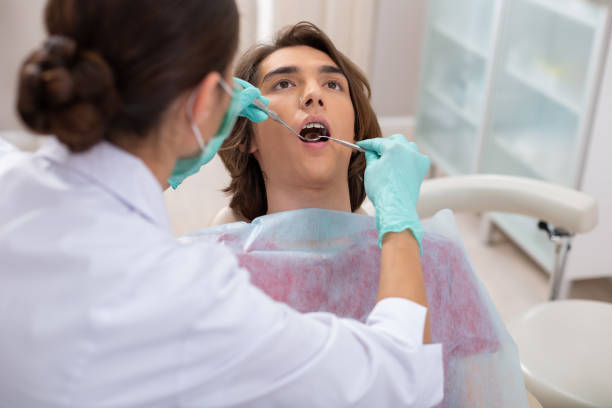In today’s society, adolescents face numerous challenges. One of the most significant concerns is the prevalence of teen alcohol and drug abuse. This issue not only affects the health and well-being of young individuals. It also has broader implications for families, communities, and society as a whole. In this comprehensive guide, we will delve into the complexities of the abuse, exploring its root causes, potential consequences, and strategies for prevention and intervention.
Understanding Teen Alcohol and Drug Abuse
Teen alcohol and drug abuse encompass a range of behaviors involving the consumption and misuse of substances. From underage drinking to illicit drug use, adolescents may engage in risky behaviors. These can have detrimental effects on their physical, emotional, and social development. It’s crucial to recognize that this abuse are multifaceted issues influenced by various factors, including peer pressure, family dynamics, and societal norms.
The Root Causes of Teen Alcohol and Drug Abuse
Several factors contribute to the prevalence of teen alcohol and drug abuse:
- Peer Influence: Adolescents are highly influenced by their peers, and the desire to fit in or rebel against authority figures can lead to experimentation with alcohol and drugs.
- Family Environment: Family dynamics, parental substance abuse, and a lack of parental supervision can contribute to teen alcohol and drug abuse.
- Genetic Predisposition: Genetic factors can increase an individual’s susceptibility to addiction and substance abuse.
- Mental Health Disorders: Teens with underlying mental health conditions such as depression, anxiety, or trauma may turn to substances as a form of self-medication.
- Environmental Factors: Socioeconomic status, access to substances, and exposure to trauma or stressors in the community can also influence this abuse.
Signs and Symptoms of Teen Alcohol and Drug Abuse
Recognizing the signs and symptoms of teen alcohol and drug abuse is crucial for early intervention and support:
- Changes in Behavior: Sudden changes in behavior, mood swings, agitation, or withdrawal from family and friends.
- Poor Academic Performance: Decline in academic performance, truancy, or disinterest in school-related activities.
- Physical Symptoms: Bloodshot eyes, dilated pupils, changes in appetite or sleep patterns, or unexplained injuries.
- Social Withdrawal: Loss of interest in hobbies or activities, withdrawal from social interactions, or spending time with new peer groups.
- Financial Issues: Requests for money without a clear explanation or theft of money or valuables to support substance use.
- Neglecting Responsibilities: Neglecting responsibilities at home, school, or work, or engaging in risky behaviors such as driving under the influence.
Consequences of Teen Alcohol and Drug Abuse
The consequences of these abuses can be severe and far-reaching:
- Physical Health: Substance abuse can lead to physical health problems. Health problems such as liver damage, respiratory issues, heart problems, and increased risk of infectious diseases.
- Mental Health: Substance abuse can exacerbate or trigger mental health disorders such as depression, anxiety, psychosis, or substance-induced mood disorders.
- Academic and Career: Teen alcohol and drug abuse can impair cognitive function, memory, and concentration, leading to poor academic performance and jeopardizing future educational and career opportunities.
- Social Relationships: Substance abuse can strain relationships with family and friends, leading to conflicts, alienation, and social isolation.
- Legal Consequences: Involvement in these abuses in teens can result in legal consequences such as arrest, incarceration, or involvement with the juvenile justice system.
Prevention and Intervention Strategies
Preventing and addressing this abuse requires a comprehensive and collaborative approach:
- Education: Providing comprehensive education about the risks and consequences of substance abuse through school-based programs, community initiatives, and parental involvement.
- Early Intervention: Identifying and addressing risk factors and warning signs of substance abuse early on through screenings, assessments, and counseling services.
- Parental Involvement: Encouraging open communication and parental involvement in teens’ lives, fostering supportive and nurturing family environments.
- Access to Treatment: Ensuring access to timely and appropriate treatment and support services for teens struggling with substance abuse. This includes counseling, therapy, and rehabilitation programs.
Seeking Help
If you suspect that a teen is struggling with this abuse, it’s essential to seek help promptly:
- Talk to Them: Approach the teen with empathy and understanding, expressing concern and offering support.
- Consult a Professional: Seek guidance and assistance from a healthcare provider, counselor, or addiction specialist for tailored treatment options.
- Supportive Environment: Create a supportive environment where the teen feels safe and comfortable discussing their struggles and seeking help.
- Treatment Options: Explore treatment options such as therapy, counseling, support groups, or residential rehabilitation programs tailored to the teen’s needs.
In conclusion, teen alcohol and drug abuse are complex issues with significant implications for individuals, families, and communities. By understanding the root causes, signs, and consequences of teen alcohol and drug abuse, we can work together to prevent and address these challenges effectively. Through education, early intervention, and support, we can empower teens to make healthy choices and lead fulfilling lives free from the grip of substance abuse. Remember, seeking help is a sign of strength, and there are resources and support networks available to assist teens and their families on the journey to recovery and wellness.

